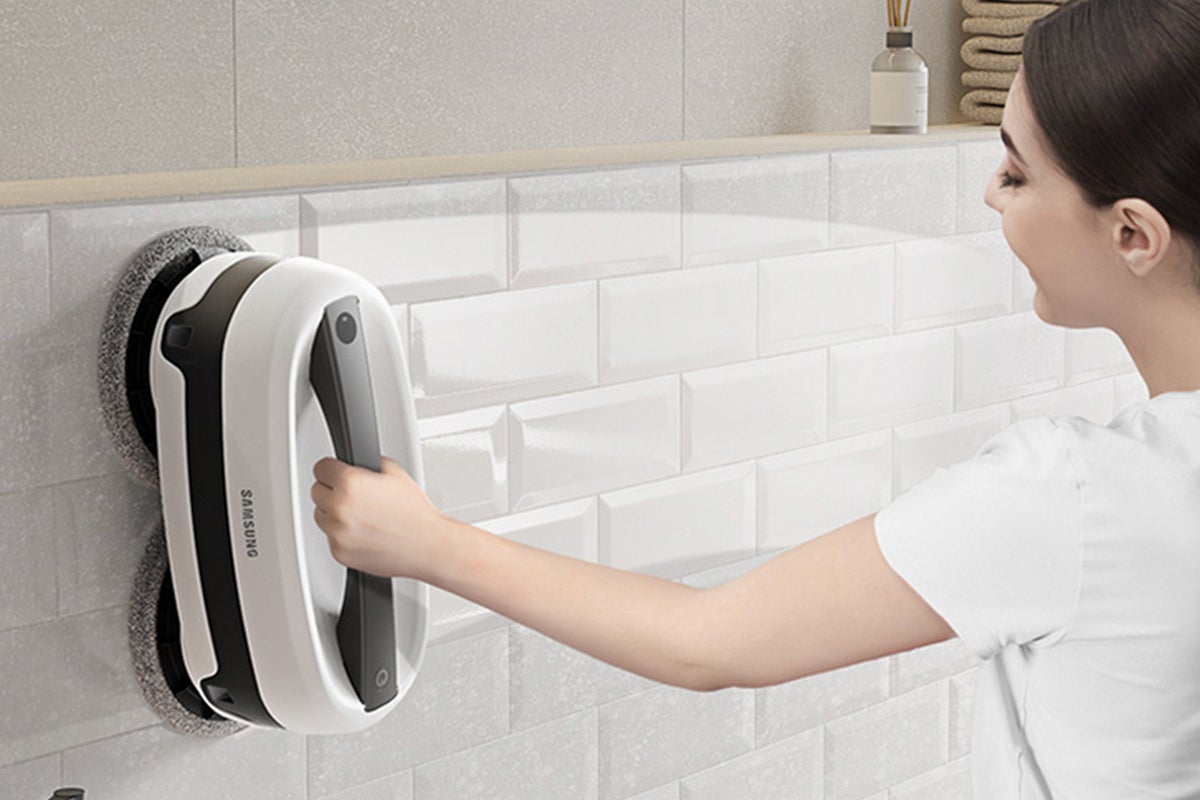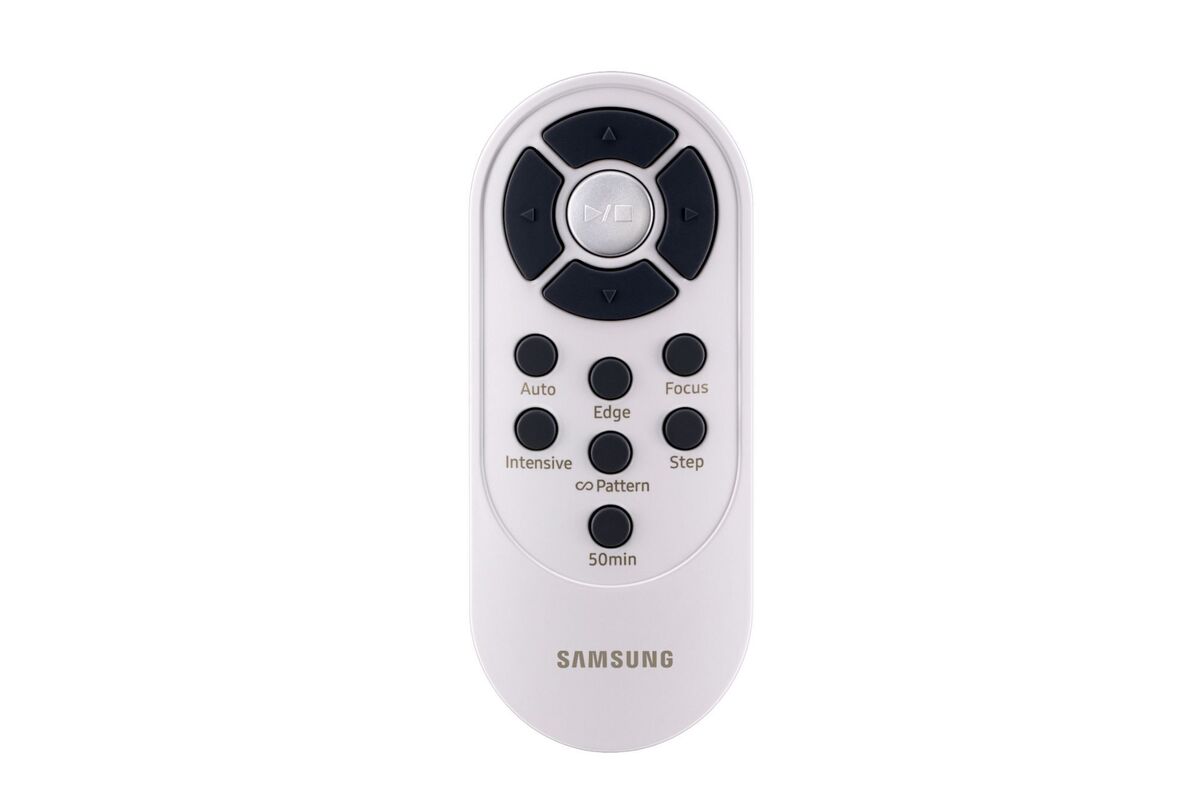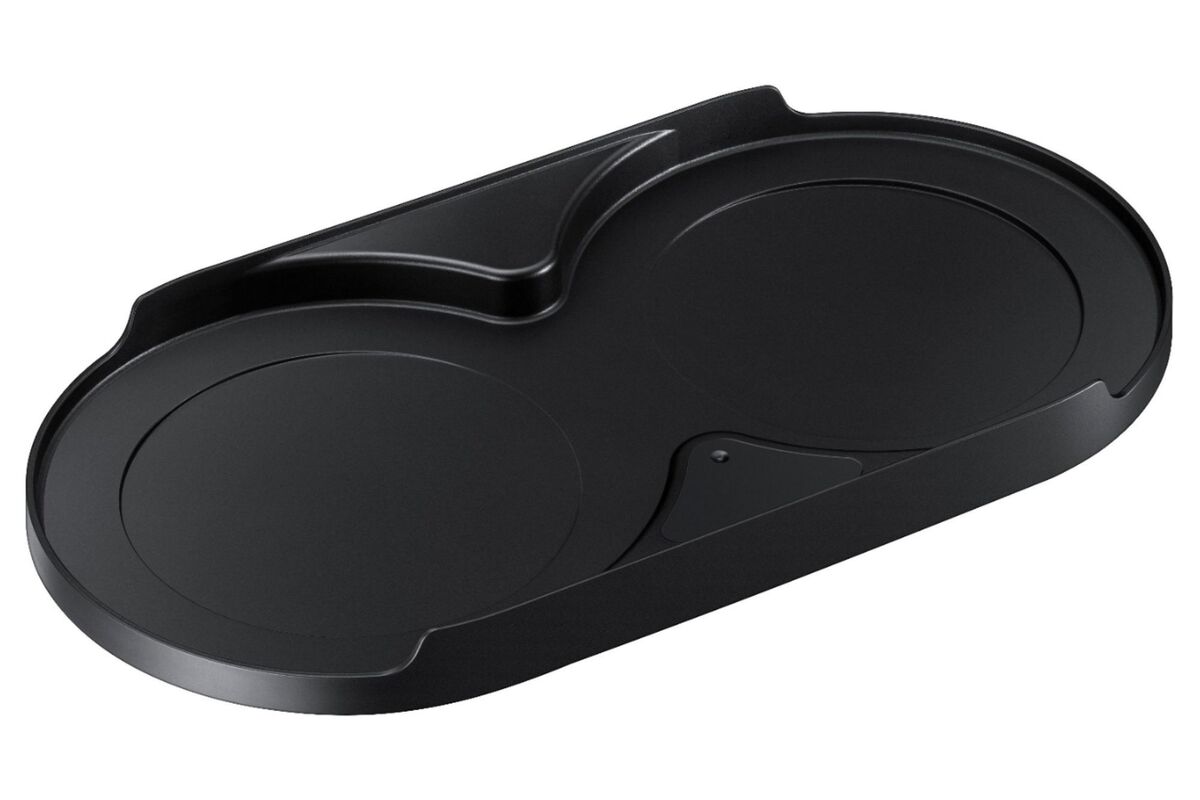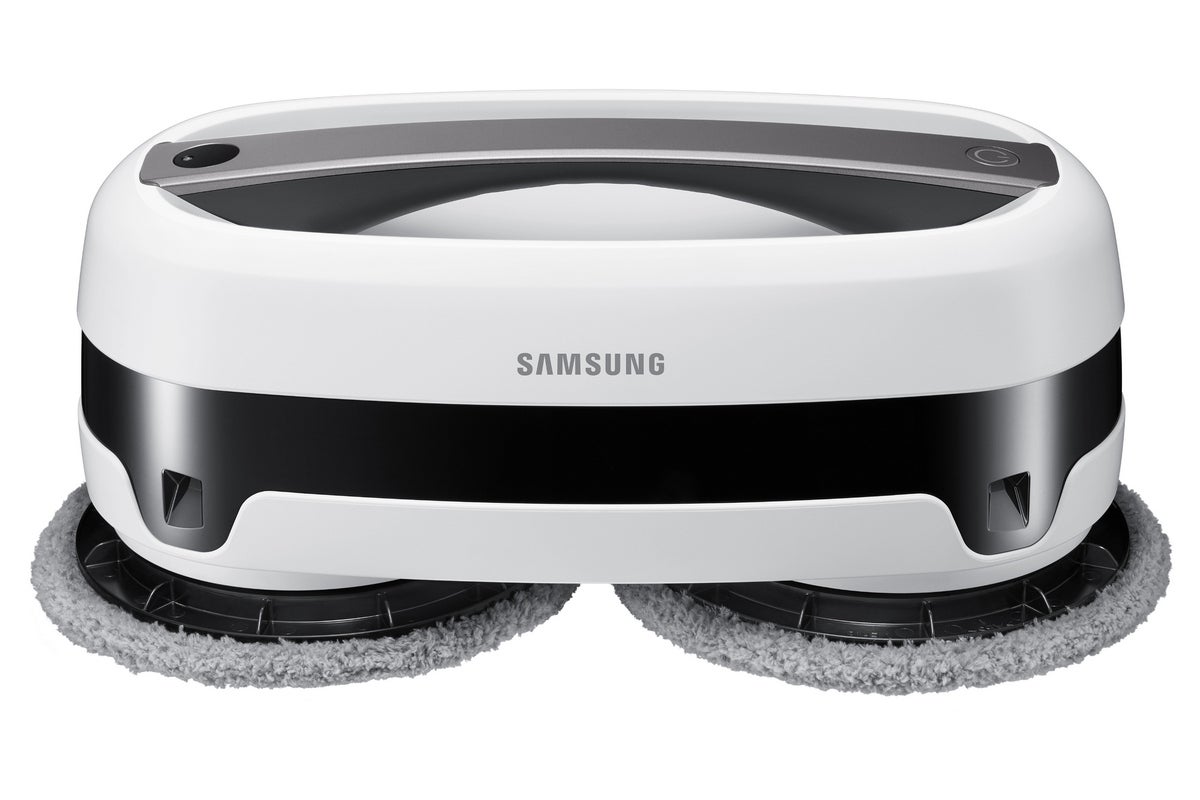This bot cleans floors, walls, windows and more. No bucket required.
Samsung
Today’s Best Tech Deals
Picked by TechHive’s Editors
Top Deals On Great Products
Picked by Techconnect’s Editors
Robot vacuums have been fairly well commoditized, but there seems to be plenty of room for innovating mopping robots. Samsung’s Jetbot Mop has one of the more unique designs we’ve seen.
The 15-inch-wide robot uses two disc-shaped water reservoirs, called the “water supply kit,” affixed with mopping pads to propel it across the floor as they scrub. And while most robot mops perform that single act, the Jetbot doubles as a handheld cleaner. Easy to operate and affordably priced, it’s a compelling alternative to more sophisticated robot mops such as iRobot’s Braava Jet m6.
This review is part of TechHive’s coverage of the best robot mops, where you’ll find reviews of competing products, plus a buyer’s guide to the features you should consider when shopping for this type of product.
Getting the Jetbot ready to clean requires very little effort. First, you wet and ring out the mopping pads; two pairs are included—the microfiber pads are better for wiping smooth flooring, white the thicker mother-yarn pads are ideal for soaking up spills and pulling dust from cracks and crevices. Next, you fill each reservoir with clean water—I had no problem doing this straight from my kitchen tap—then attach a mop pad to each one. Finally, attach each reservoir to its post on the bottom of the robot.
To clean, you just set the Jetbot on the floor and press the power button once to turn it on, then again to activate Auto mode. The robot starts shimmying across the floor powered by the spinning motion of its mops.
 Samsung
SamsungYou can lift Samsung’s 6-pound Jetbot Mop and power-clean your walls.
The Jetbot doesn’t have any room-mapping capability, so it cleans in a seemingly random pattern of straight, diagonal, and zig-zag movements using its smart sensors to avoid walls, furniture, and cliffs. It’s funky looking if you’re used to the straight-ahead paths taken by most vacuum/mop hybrids, but it worked well enough to give my kitchen and bathrooms wall-to-wall coverage. It also doesn’t support virtual boundaries, so I had to create a physical one using some boxes to keep it from drifting onto the carpeted floors that adjoin these rooms.
 Samsung
SamsungSamsung doesn’t provide an app for controlling the Jetbot Mop, but you will get a dedicated remote control.
In addition to Auto cleaning, the Jetbot offers seven other modes that you can activate from the device’s remote control. Some, like Edge and Focus, which allow the Jetbot to mop along walls or thoroughly clean areas of concentrated dirt, should be familiar if you’ve used a robot vacuum. Other modes like Step and Figure-8 clean in unique patterns that are probably best suited for larger spaces than the kitchen and bathroom. You can also direct the Jetbot manually using the remote’s directional keys.
Grab it by its handle and press the power button twice quickly and you can use it to clean bathtubs, shower tiles, windows, and other surfaces. I found this particularly, er, handy, as all you need to do is apply a bit of pressure and the Jetbot does most of the work tackling these detested housekeeping chores.
 Samsung
SamsungThe Jetbot can be set in its floor plate when it’s not in use.
The Jetbot won’t eliminate the need for hand mopping. While it’s great for wiping away surface grime, it doesn’t provide the agitation needed to scrub out deeper dirt. And because it can only use plain water, it won’t disinfect your floors. But these are limitations of most robot vacuums. With its double-duty capabilities, it will reduce how frequently you have to break out your stick mop and other cleaning supplies, and that makes it worthy of recommendation.
Note: When you purchase something after clicking links in our articles, we may earn a small commission. Read our affiliate link policy for more details.
The Samsung Jetbot Mop is an easy-to-use household helper for cleaning kitchens, scrubbing showers, and performing other light mopping jobs.
Pros
- Can clean floors automatically and walls and windows (by hand)
- Simple setup and operation
- Has eight cleaning modes
Cons
- Not great at removing concentrated stains
- No app control or scheduling features
- Doesn’t support virtual boundaries
Michael Ansaldo is a veteran consumer and small-business technology journalist. He contributes regularly to TechHive and writes the Max Productivity column for PCWorld.


